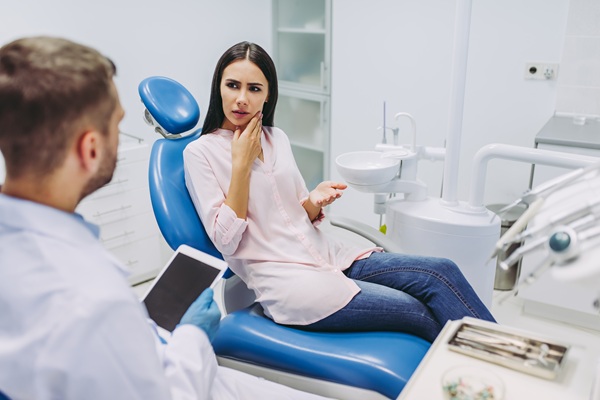When You Need an Emergency Dentist vs. an Emergency Room

If an individual injures a tooth in an accident, an emergency room will be able to stop the bleeding but will not repair or even possibly be able to save the tooth itself. Therefore, once the individual can return home and leave the emergency room, the patient needs to call an emergency dentist. A dentist can not only replace, repair or save a damaged tooth but can also provide specific emergency care for the patient.
Several treatments that patients can receive are:
- Dental sealants
- Dental bonding
- Dental crowns
- Dental restorations
- Treatments for cavities
The individual may already be distressed from the accident and may have trouble remaining calm. Seeing a general dentist for emergency dental care may not be the type of care that the patient requires, or the patient may have waited too long after the incident. General dentists are not always the best option, since they are not accessible outside of business hours. Emergency dentists can offer emergency treatment when the individual is in need at any hour. An emergency dentist has the required services to give the most effective form of treatment for the individual while also keeping the patient relaxed during the procedure.
After the accident occurs, call a dentist office and arrange an emergency appointment. It is important to receive care for a missing or damaged tooth as soon as possible. The longer an individual waits to pursue urgent care treatment, the higher the chance that the individual will not be able to have the damage repaired.
Definitions for dental emergency terminology
Abscess: A dental abscess is a sack of pus that starts in the tooth root from a bacterial infection.
Facial cellulitis: Facial cellulitis is an ailment in which an infection from an abscess or plaque in the teeth causes discomfort and stretches throughout the face.
Impacted wisdom tooth: An impacted wisdom tooth does not erupt from the gums correctly and can cause extreme pain and become infected without professional extraction.
Irreversible pulpitis: Irreversible pulpitis is when an ache in the tooth appears spontaneously or continues to throb after the patient eliminates the hot/cold substance that was creating pain. Normal pulpitis will stop hurting directly after eliminating what is contributing to the pain.
Tooth avulsion: Tooth avulsion is when the tooth displaces from the socket due to an accident or other hygiene issues. A dentist can replant the tooth if the patient seeks immediate care.
Tooth fracture: A tooth fracture can develop from numerous sources, including an accidental hit to the face during a sports game, biting on something hard or falling face first.
What’s the bottom line?
Luckily, tooth issues are treatable most of the time, and regardless of the treatment decision the emergency dentist and individual make, the teeth should be back on the right track for continuing robust oral health.
Request an appointment here: https://whiteflintfamilydental.com or call White Flint Family Dental at (301) 273-1085 for an appointment in our Rockville office.
Recent Posts
Having a dental emergency can be a very stressful experience, and emergency orthodontics can be even more worrisome. But what exactly constitutes an emergency when it comes to orthodontic care? We will explore what requires an emergency orthodontics visit and the best ways to prevent and treat them. With information, you can be prepared in…
An emergency dentist is a particular type of dental professional who undergoes additional education and training to learn how to deal with urgent and emergency situations. While emergency dentists do learn how to provide general dentistry care, they also learn how to think and act on the spot when an emergency happens. In most cases,…
Wondering whether a damaged tooth constitutes a dental emergency? Read on to find out. A damaged tooth may be considered a dental emergency if it causes severe and borderline intolerable discomfort (pain, swelling, sensitivity), causes a severe cosmetic issue, or is at risk of worsening complications, such as the loss of the tooth or the…
Most dental care can be done at your regular dentist on your schedule. However, some types of care need the immediate attention of an emergency dentist. Assessing the type and severity of your symptoms is the key to determining when you need emergency care. The faster you act, the better your outcome is likely to…


